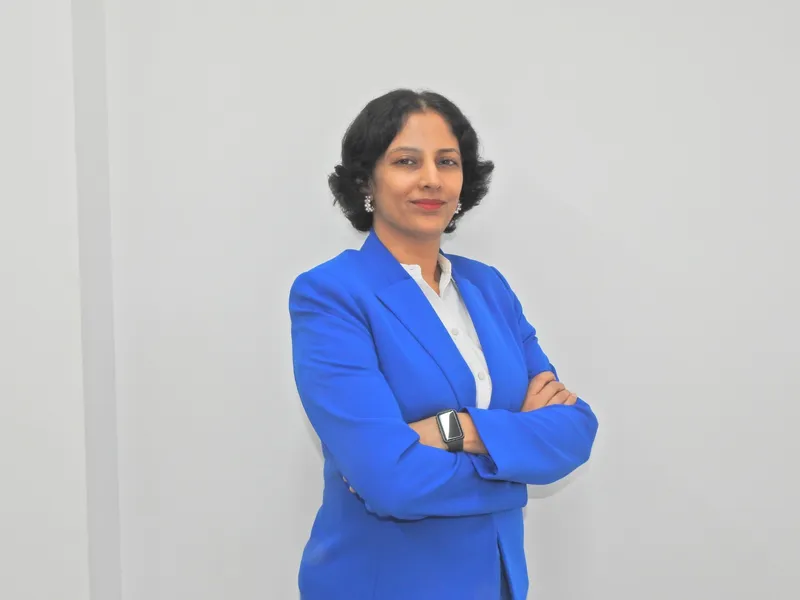[100 emerging women leaders] How Dr Rinky Kapoor is mainstreaming cosmetic dermatology
The Esthetic Clinics, co-founded by Dr Rinky Kapoor, offers a wide range of skin, hair, cosmetic, reconstructive and dental treatments. It is also the parent of another brand—QR678, which focuses on hair growth.
Dr Rinky Kapoor’s humble beginnings didn’t stop her from dreaming big.
Growing up in a middle-class family in a small suburb of Mumbai, her father was an engineer and her mother a homemaker. From a young age, she wanted to become a doctor and dermatology, especially cosmetics, piqued her interest.
This interest later led her on the path of entrepreneurship.
In 2009, Dr Kapoor started The Esthetic Clinics at Apollo Hospitals in Hyderabad. The centre offers a wide range of skin, hair, cosmetic, reconstructive and dental treatments.
She built the aesthetic centre from the ground up, handling everything from managing finances to infrastructure.
“It was a real eye-opener. I learned the crucial skills of managing systems, processes, and people. I understood that in addition to clinical expertise, corporate management skills are essential and both must merge for scaling up,” she tells HerStory.
When she returned to Mumbai after three years, she decided to use her experience and opened a small clinic in Kandivali.
In 2007, Dr Kapoor started the research for her new brand QR678, which focuses on hair growth. The founder says its solution QR678 Neo has been patented in the US and received CE certification in the European Union as well as regulatory approvals in over 10 countries. It has been available for commercial use since 2019.
Dr Kapoor explains that QR678 Neo mimics natural hair growth factors, such as Vascular Endothelial Growth Factor and Insulin-like Growth Factor, among others.
“These components work to stimulate hair follicles, extend the growth phase of hair, and create a healthier scalp environment, helping individuals regain lost hair caused by a range of conditions—from hormonal androgenetic hair loss and hereditary baldness to hair loss due to cancer treatments, medical conditions, and even COVID-19,” she adds.
Esthetic Centers International Pvt Ltd, which was later established in 2017 has four properties—The Esthetic Clinics, QR678, a clinical research and innovation segment called TECCRO, and the International Academy of Facial Cosmetic Surgery, which is a training academy that offers skills-based training in all aspects of cosmetic surgery and facial aesthetics.
The entrepreneurial journey

Dr Rinky Kapoor
Dr Kapoor completed her MBBS and later pursued an MD in Dermatology from Lokmanya Tilak Municipal Medical College and General Hospital, Mumbai. She later trained in aesthetics abroad. All this while, she was working as a consultant cosmetic dermatologist at a skincare clinic.
“Entrepreneurship wasn’t always a dream for me; it evolved over time. I don’t come from an entrepreneurial background—initially, my focus was solely on medicine,” Dr Kapoor says.
She adds that growing up in a middle-class family her goal was to prove herself and excel academically.
“My parents were supportive and encouraged me to pursue a career in medicine, which motivated me to achieve something significant,” she adds.
Roadblocks
However, Dr Kapoor’s journey has not been a bed of roses. Since she did not come from a business family, she had no idea of how to run a business.
“Aesthetics is a challenging speciality to practice because the results of treatments are immediately visible on the skin, requiring precision and a lot of guidance. Additionally, it requires high investments and extensive research,” she adds.
She also shares that getting patients is also tough as it primarily involves need-based care seekers.
Meanwhile, balancing work with family life was also challenging. Dr Kapoor recalls that if she worked late or did not manage to balance everything perfectly, she had to face questions and judgements—something that her male counterparts didn't.
“Even with a supportive family, societal expectations—particularly the assumption that women should be the primary caregivers—added to the stress. Managing a small clinic while starting a family meant long hours and constant juggling. Despite these hurdles, the journey from a tiny clinic to multiple centres across India has been incredibly rewarding,” she says.
She says that one important lesson she has learned is the immense power of women supporting each other.
“When women uplift and assist one another, the barriers of gender bias and societal challenges become less daunting. My journey has been profoundly shaped by the support I have received from the women in my life—starting with my mother and later, my mother-in-law. Their encouragement and understanding have been invaluable, often more supportive than even my husband,” she adds.
She advises other women founders to actively seek out and build a network of support among women.
“Collaboration and mutual encouragement can help us go beyond obstacles that might otherwise seem insurmountable. Instead of competing or undermining each other, let us focus on lifting each other up,” she says.
(The copy was updated.)
Edited by Kanishk Singh


![[100 emerging women leaders] How Dr Rinky Kapoor is mainstreaming cosmetic dermatology](https://images.yourstory.com/cs/4/d4ffdb60a78511eda2036d5930e44559/100EmergingWomenDrRinkyKapoorTwitterPreview-1725633101281.jpg?mode=crop&crop=faces&ar=16%3A9&format=auto&w=1920&q=75)




